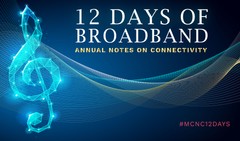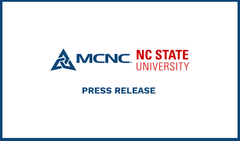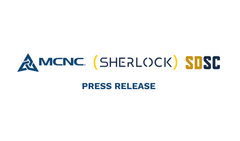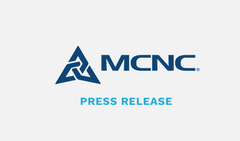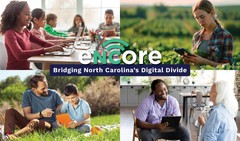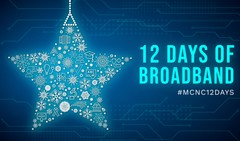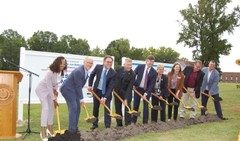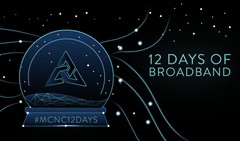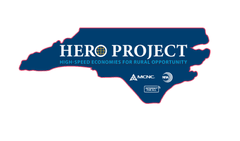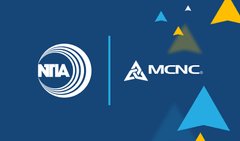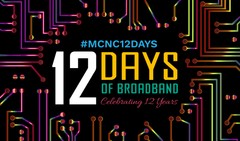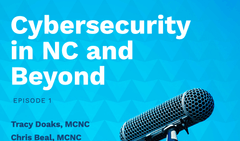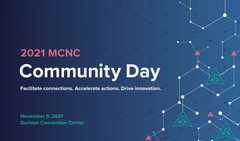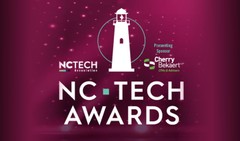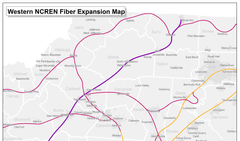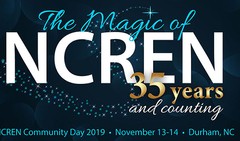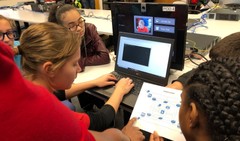MCNC answers call for action on digital opportunities in North Carolina
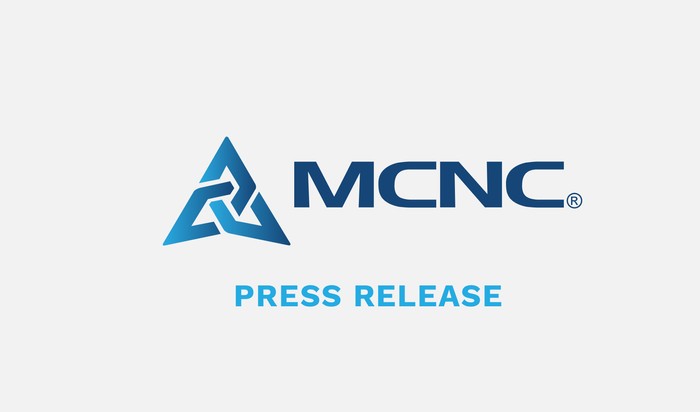
Lack of high-speed Internet and technology for many in North Carolina, particularly in rural areas, has deep social and economic consequences; MCNC wants to connect with others who seek to make digital opportunities a reality for the entire state
RESEARCH TRIANGLE PARK, N.C. (Feb. 4, 2021) – MCNC, the technology non-profit that builds, owns, and operates the statewide North Carolina Research and Education Network (NCREN), today reaffirmed its commitment to digital opportunities in North Carolina – offering recommendations, support, technology and more, as well as issuing a call to action to connect with others who also want to achieve this important goal.
Digital opportunities can improve healthcare, education, local economies, and give citizens effective ways to connect online while obtaining the skills they need to participate in today's remote work and learning environments. According to MCNC President and CEO Tracy Doaks, digital opportunities in North Carolina would have long-lasting economic and social benefits; MCNC is therefore ready to lead and, more importantly, ready to listen.
“MCNC has been involved in digital inclusion efforts across North Carolina and at the national level for many years, and we take the role of helping our community very seriously,” explained Doaks. “The pandemic has shined a bright light on the 'haves' and 'have nots' in North Carolina, and MCNC continues to ensure North Carolina's future is connected today by deepening our engagement in these pivotal digital inclusion efforts.”
For 40 years MCNC has connected and protected communities with high-speed Internet and networking technologies throughout North Carolina. And during those four decades, MCNC has built-out its world-class network to many unserved and underserved areas of the state (now at nearly 4,500 miles) all while continuing to stress that the growth of the “digital divide" or "homework gap" would pose significant social and economic challenges. Today, citizens must be able to support remote work, virtual school and day-to-day living, and the pandemic has shown that digital opportunities really are all-encompassing – where citizens not only need access to reliable broadband, but also secure access to services, support and skills on how to use it.
“COVID-19 has created huge shifts in broadband-related needs, but MCNC has come alongside many North Carolina communities throughout this pandemic to help navigate new challenges, disparities, needs and opportunities,” added Stephanie Jane Edwards, GIS Analyst and MCNC's Digital Inclusion Liaison. “While we cannot address all aspects of digital inclusion, MCNC does have cutting-edge network infrastructure and collaborative working relationships with K-12 schools, colleges and universities, libraries, healthcare organizations, and local governments across the state. We increasingly strive to be more than just a provider of broadband-based technology services, but a trusted community partner on digital inclusion.”
MCNC seeks to improve broadband access, working in collaboration with other ISPs to fill in gaps and impact a community’s digital infrastructure.
MCNC is well-positioned for digital inclusion work, such as:
- Forming actionable strategies and identifying approaches to digital opportunities that could be sustainable for communities now and over the next several years.
- Participating in active conversations at the state and national level..
- Gathering input from community anchor institutions (CAIs) – including local governments – and ISPs related to their key challenges; helping them reach their digital inclusion goals. MCNC is a member of the Schools, Health & Libraries (SHLB) Coalition at the national level and supports their effort to improve broadband access and digital inclusion efforts “to and through” the CAIs of unserved and underserved areas. This resonates with the mission of MCNC because CAIs are on the front lines of meeting the needs and goals of their surrounding communities and are critical in creating ripple effects in other communities.
- Continuing to explore innovations in unserved and underserved communities by collaborating with anchor institutions and last-mile ISPs to determine if these efforts could serve as new models that are scalable and can be replicated in other North Carolina communities.
MCNC’s broadband network touches virtually every county in the state, affordably and effectively removing connectivity barriers previously experienced in North Carolina. MCNC is ready to once again demonstrate just how important reliable, fast, and affordable Internet is today, and how the right investments can lead to digital opportunity innovations that drive economic and social growth in North Carolina.
MCNC wants to hear from you – use #DEIforNC to join us in conversations on social media.
